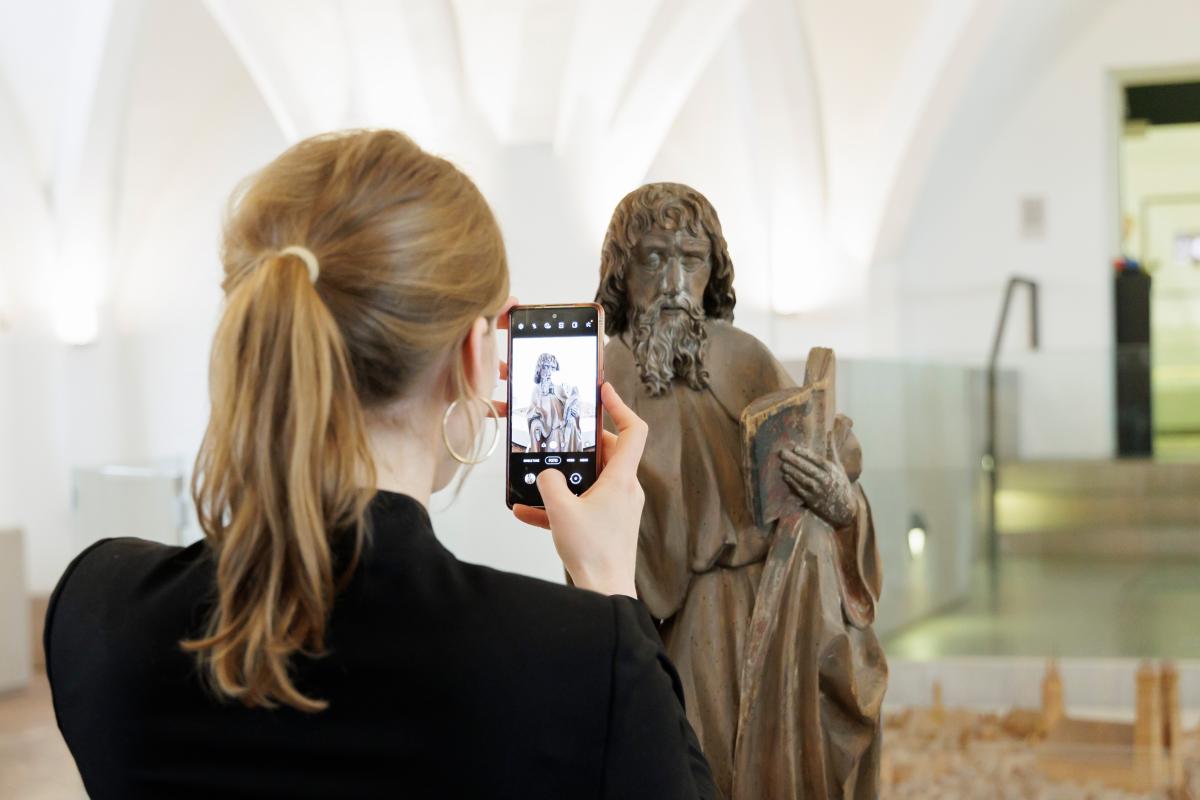Research carried out by Münchner Stadtmuseum in cooperation with the Zentralinstitut für Kunstgeschichte (Central Institute for Art History) showed that Jacques Rosenthal’s figure had been seized in 1938 as a result of persecution. The Munich museum acquired the figure on 2 December 1938 at an auction held at the Munich art dealership Adolf Weinmüller. The apostle was identified in the auction catalogue with the consignor’s abbreviation “R. in M.”. Investigations have now revealed that the sculpture was once the property of Munich antiquarian Jacques Rosenthal, who suffered persecution as a Jew.
Rosenthal came from an internationally famous dynasty of Jewish antiquarians whose clientele included King Ludwig II. From the 1910s onward, Jacques’ son Erwin Rosenthal (1889-1981) supported his father in running the business. From the beginning of the National Socialist regime in 1933, the Rosenthal family was subjected to attacks motivated by anti-Semitism, and the business suffered considerably as a result. In July 1935 the family was forced to sell their house to the German Labour Front. This was followed shortly afterwards by expulsion from the Reich Chamber of Fine Arts, which was tantamount to an occupational ban. The proprietors were ordered to close the shop and sell their stock within four weeks. Erwin Rosenthal then sold the antiquarian bookshop to his employee Hans Koch and emigrated to Florence in March 1936. From then on, Erwin’s parents Jacques and Emma Rosenthal lived at the Hotel Regina in Munich where Jacques Rosenthal died in October 1937. Much of their art collection was put up for sale between 1936 and 1938 through the art dealers Julius Böhler and Adolf Weinmüller, including the now restituted apostle figure.
By drawing on expertise gathered through the research project “Reconstruction of the Private Art Collection of Jacques, Emma and Erwin Rosenthal” carried out at the Zentralinstitut für Kunstgeschichte [Central Institute for Art History] in Munich, it was possible to prove beyond doubt that this was a case of a seizure as a result of Nazi persecution. The project was funded by the German Lost Art Foundation. Through the mediation of the Holocaust Claims Processing Office (HCPO) in New York, a trusting dialogue was established with the descendants of the Rosenthal family, enabling agreement to be reached on the restitution and subsequent repurchase of the figure, and therefore a “just and fair solution” in the sense of the “Washington Principles”. The repurchase was enabled by the museum sponsorship association Freunde des Münchner Stadtmuseums.
For further information on the research project, see the website of the Zentralinstitut für Kunstgeschichte.


